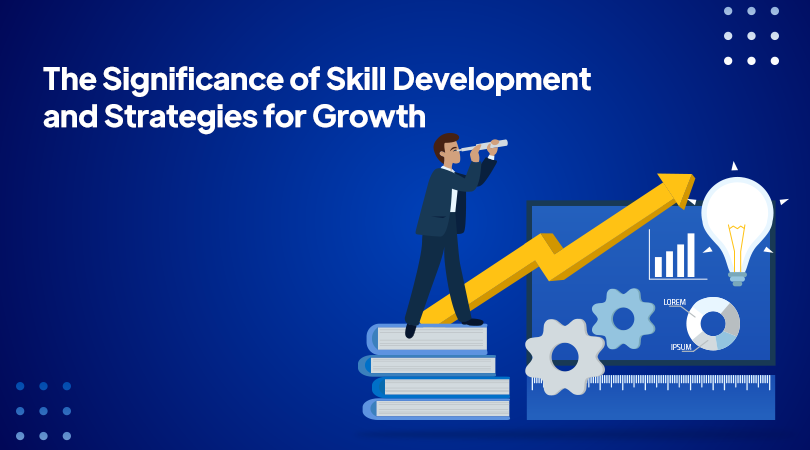
 December 4, 2023
December 4, 2023
In the dynamic and ever-evolving world we live in, skill development has emerged as a cornerstone of personal and professional success. It is the continuous process of acquiring, enhancing, and refining one’s abilities and knowledge to effectively perform tasks, solve problems, and adapt to changing circumstances. Skill development is not merely about acquiring technical expertise; it encompasses a broad spectrum of competencies, including soft skills, cognitive abilities, and adaptability.
Skill development holds immense significance for individuals, organizations, and societies as a whole. It empowers individuals to navigate the complexities of the modern world, enhance their employability, and achieve their personal and professional goals. For organizations, a skilled workforce is the driving force behind innovation, productivity, and competitiveness. At a societal level, skill development contributes to economic growth, poverty reduction, and sustainable development.
Effective skill development is an ongoing process that requires dedication, perseverance, and a willingness to learn. Whether you’re trying to improve your professional skills, develop new hobbies, or simply enhance your personal well-being, there are a number of strategies that can help you achieve your goals.
Here are some key strategies for effective skill development:
Identify your goals and motivations: Clearly define what skills you want to develop and why they are important to you. Having a clear purpose will fuel your motivation and help you stay focused throughout the learning process.
Assess your current skill level: Evaluate your existing knowledge and abilities related to the desired skills. This will help you identify areas that need improvement and determine the appropriate starting point for your learning journey.
Choose effective learning methods: Select learning approaches that suit your learning style and preferences. Consider options such as online courses, workshops, tutorials, books, mentorship, or hands-on practice.
Set realistic goals and timelines: Break down your learning goals into smaller, achievable steps. Regularly evaluate your progress to identify areas for improvement and make adjustments as needed. This will help you stay on track and maintain motivation.
Practice Regularly: Make practice a regular habit to ensure continuous improvement and skill mastery. Consistent practice is essential for improving proficiency and retaining information.
Seek feedback and guidance: Get feedback from experienced individuals or mentors to identify areas for improvement and refine your skills. Seek guidance when needed to overcome challenges and stay on the right track.
Embrace challenges and mistakes: View setbacks as opportunities to learn from mistakes, refine strategies, and emerge stronger. Don’t be discouraged by setbacks; instead, analyze what went wrong and make adjustments to your approach.
Celebrate your achievements: Recognize and celebrate your accomplishments along the way. This will boost your confidence and encourage you to continue learning and developing your skills.
Stay motivated and focused: Maintain your motivation by reminding yourself of your goals and the benefits of developing the desired skills. Stay focused on your learning path and avoid distractions.
Seek Opportunities to Apply Your Skills: Actively seek opportunities to apply your newly developed skills in real-world settings. This will reinforce your learning and demonstrate your proficiency.
Continuous learning: Skill development is an ongoing process. Continuously seek opportunities to learn, expand your knowledge, and enhance your skills. This will help you stay relevant and adapt to changing demands.
Remember, effective skill development requires dedication, persistence, and a willingness to learn. By implementing these strategies, you can effectively develop the skills you need to achieve your personal and professional goals.
In conclusion, skill development is an invaluable asset for individuals, organizations, and societies. It empowers individuals to achieve their personal and professional goals, drives organizational success, and contributes to societal progress. By investing in skill development, we invest in our future, creating a more skilled, adaptable, and prosperous world.